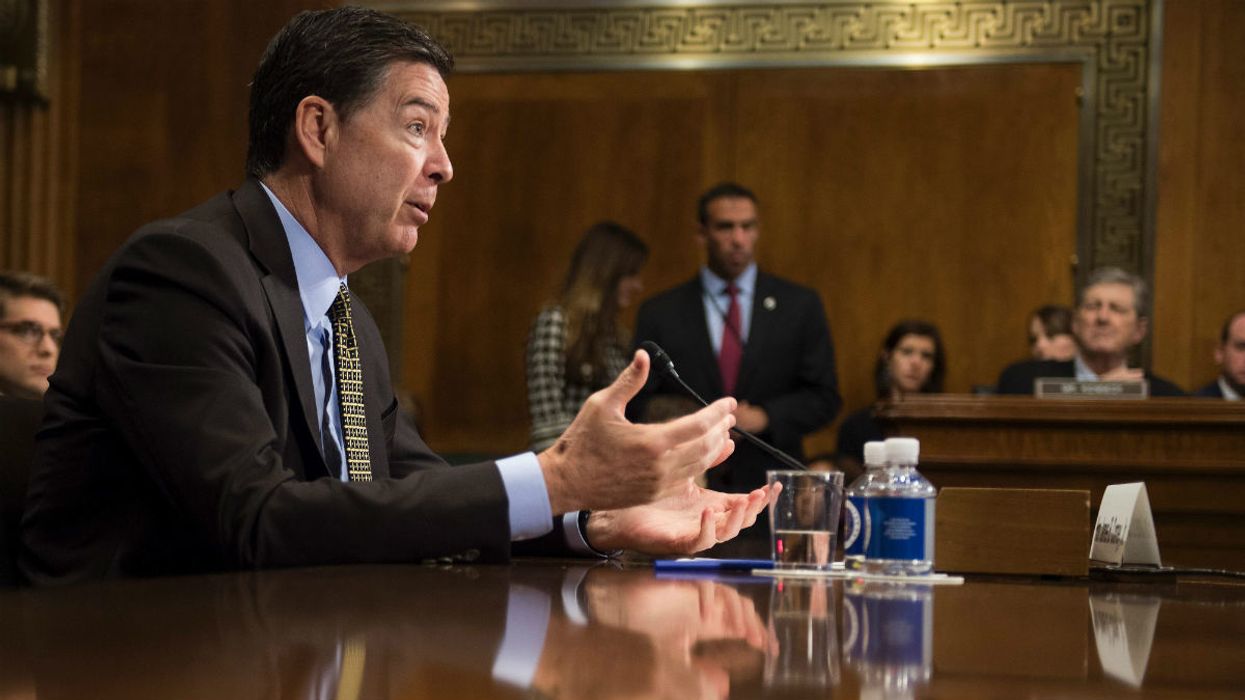
JIM WATSON/AFP/Getty Images

How many more informants targeted the Trump campaign?
Just two months before the 2016 presidential election, the Federal Bureau of Investigation — under the command of now-fired FBI Director James Comey — sent at least two undercover operatives to gather information on Trump campaign figures.
Information leaked to The New York Times in a report Thursday confirmed that the FBI sent an undercover informant who went by the alias "Azra Turk" to meet with Trump foreign policy aide George Papadopoulos. Her objective, according to The Times, was to find out: "Was the Trump campaign working with Russia?"
The New York Times reports:
"The woman had set up the meeting to discuss foreign policy issues. But she was actually a government investigator posing as a research assistant, according to people familiar with the operation. The F.B.I. sent her to London as part of the counterintelligence inquiry opened that summer to better understand the Trump campaign's links to Russia."
The report adds:
The decision to use Ms. Turk in the operation aimed at a presidential campaign official shows the level of alarm inside the F.B.I. during a frantic period when the bureau was trying to determine the scope of Russia's attempts to disrupt the 2016 election, but could also give ammunition to Mr. Trump and his allies for their spying claims.
"Turk" accompanied the CIA-connected Stefan Halper, who was reportedly also working with the FBI at the time, as part of their operation to gather information on Papadopoulos.
The erroneous claim that President Donald Trump was deeply tied to the Kremlin was popularized thanks to a Russia-sourced dossier crafted by a former British Spy, Christopher Steele, who was contracted by the Hillary Clinton campaign. The dossier, and the media reporting generated by it, was a main source of evidence for the government to justify conducting surveillance on Trump campaign foreign policy aide Carter Page, who left the campaign three weeks before the surveillance began.
Not a single major allegation in the dossier has been confirmed. In fact, much of it has been debunked. And the Robert Mueller investigation did not find a single piece of evidence that President Trump or any of his associates conspired with the Russian government to defeat Hillary Clinton and win the 2016 election.
The New York Times piece claims that the operation against Papadopoulos was a search for the truth, above all else. Papadopoulos maintains that it was a far more sinister, integrated effort, through multiple U.S. and allied intelligence agencies, to attempt to entrap him and set him up, as part of an operation to throw the election to Clinton. The Trump campaign aide took to Twitter Thursday afternoon to give his side of the story:
Papadopoulos later pleaded guilty for making false statements to the FBI about which month he met with Joseph Mifsud, a Maltese professor who told Papadopoulos that the Russians had "dirt" on Hillary Clinton. Mifsud, who may also be a western intelligence asset, has largely disappeared over the past few years.
In interviews on the subject, Papadopoulos claims that he was interviewed by the FBI under duress, and says that situation is to blame for him being one month off about which month he met with Mifsud.
There is now confirmation that at least two undercover operatives were sent to investigate the Trump campaign. It remains to be seen how many more individuals and agencies in Obama's administration were involved in the effort to investigate Trump's campaign.